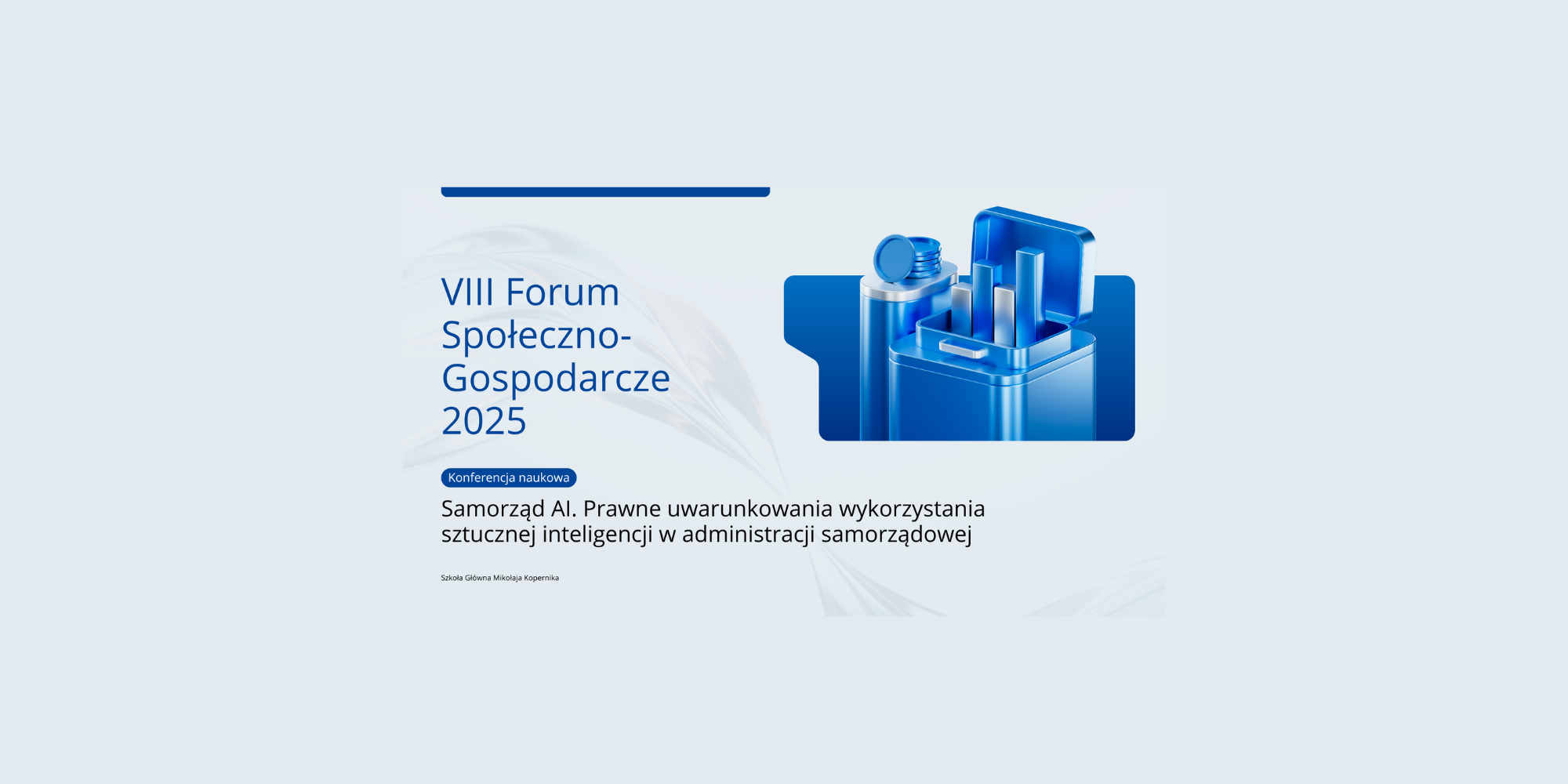On June 12, 2025, a nationwide scientific conference entitled “AI Local Government. Legal conditions for the use of artificial intelligence in local government administration”, organized by the Nicolaus Copernicus Superior School, was held at the Culture Hall in Łomża. The event was a part of the 8th Social and Economic Forum 2025, which this year was held under the slogan “Digitization of public and social life.”
The conference brought together a large group of experts in the fields of law, public administration, and IT, as well as local government practitioners and representatives of the new technologies sector. Discussions focused on current challenges related to the implementation of artificial intelligence (AI) in the functioning of local government units and on the legal, ethical, and organizational aspects of this process.
Introductory speeches on artificial intelligence in public administration at the local and regional level were given by Dr. Daniel Milewski, Vice-Rector of the Warsaw University of Business and Psychology “Moderna,” Dr. Adam Ciszkowski, President of the Association of Polish Local Governments, and Marcin Dendler, Public Policy Director, Polish Chamber of Artificial Intelligence. The experts discussed the real-world applications of AI in the work of local government offices and presented examples of projects already being implemented at the local level.
During the conference, several thematic panels were held, which allowed for a comprehensive overview of the issue of AI in local government.
The panel “The importance of legal aspects of the use of artificial intelligence for the digital transformation of local government administration” was attended by Prof. Fabrizio Giulimondi (Rome), Dr. Karol Dobrzeniecki, Dr. Joanna Wrona-Viugt, Dr. Michał Sopiński, Prof. AWS, and Dr. Mariusz Misiak, Prof. SGMK.
The discussion focused on legislative and regulatory issues that determine the possibilities of using AI in public administration.
Dr. Mariusz Zagórski, Paweł Pisarczyk, Paweł Ciesielski, Eugeniusz Wiśniewski, and Wojciech Nowak presented their perspectives during the panel discussion “The AI Revolution: New Tools in the Hands of Local Governments.” The speakers presented specific examples of technological solutions that support the efficiency and transparency of administration.
The last session was a summary session and provided a space for discussion on responsibility, data security, and the role of education in the effective implementation of AI. The panel “Legal and practical challenges of using artificial intelligence in local government administration” featured Dr. Beata Zięba, Dr. Cezary Małozięć, Dr. Rafał Stasikowski, Dr. Artur Krukowski, and Dr. Mariusz Chrzanowski.
The conference had an international dimension—some of the speakers represented foreign institutions, and the entire meeting was broadcast online, which allowed for broad participation from academic, local government, and technological circles from all over Poland and beyond.








